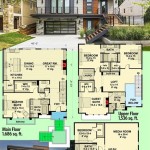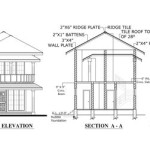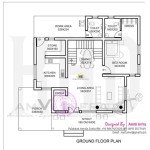Essential House Planning Considerations for a Dream Home
Building a house is a significant milestone that requires careful planning and consideration to ensure a comfortable and functional living space. Here are some essential aspects to take into account when embarking on the journey of house planning:
1. Lifestyle and Needs:Evaluate your lifestyle and current needs to determine the appropriate size, layout, and features of your home. Consider the number of bedrooms, bathrooms, living areas, outdoor spaces, and storage options required to accommodate your family's needs and future aspirations.
2. Budget and Financing:Establish a realistic budget that includes not only construction costs but also expenses such as land acquisition, permits, and ongoing maintenance. Secure financing from a reliable lender to cover the project's expenses while considering mortgage rates, down payment requirements, and closing costs.
3. Location and Neighborhood:Research different neighborhoods to find an area that aligns with your preferences and lifestyle. Consider factors such as proximity to schools, amenities, transportation, and potential future developments that may impact the value and desirability of your home.
4. Site Conditions:Conduct a thorough site analysis to understand the land's topography, soil conditions, drainage, and access to utilities. These factors can influence design decisions, construction methods, and potential landscaping options.
5. Architectural Style and Design:Select an architectural style that reflects your personal preferences and complements the surrounding environment. Consider the aesthetics, functionality, and livability of different designs to create a home that meets your specific requirements.
6. Energy Efficiency and Sustainability:Incorporate energy-efficient features into the home's design to reduce operating costs and minimize environmental impact. Consider energy-efficient appliances, lighting systems, insulation, and renewable energy sources such as solar panels.
7. Indoor Air Quality:Plan for adequate ventilation and natural lighting to ensure a healthy indoor environment. Choose low-VOC (Volatile Organic Compounds) materials, minimize air pollutants, and consider air purification systems to promote air quality and well-being.
8. Accessibility and Universal Design:Incorporate accessibility features to accommodate individuals with disabilities or changing needs in the future. Consider ramps, wider doorways, accessible bathrooms, and other design elements that promote ease of movement and independent living.
9. Outdoor Spaces and Landscaping:Design outdoor spaces that extend the living area and enhance the overall experience. Consider patios, decks, gardens, and recreational areas to provide opportunities for relaxation, entertainment, and connection with nature.
10. Professional Advice and Collaboration:Consult with experienced professionals such as architects, builders, and interior designers to ensure a comprehensive and well-executed house plan. Their expertise can guide you through design decisions, construction details, and project management to achieve your dream home.

Design Considerations For Diffe House Types
What Are The Most Important Design Considerations When Building A Home Addition Quora

Meinhardt S Exclusive In House Seminar Senior Living Facility Design Considerations And Well Transforming Cities Shaping The Future

Here S How Considerations When Building A Healthy Home

Post Pandemic Home Design 8 Considerations

The Live Well Home Considerations For Post Pandemic Layout

Mastering Planning Considerations The Secret To Success Urbanist Architecture Small Company London

Important Design Considerations For Energy Efficient Homes Green River Llc

Vital Things To Consider When Designing A House Plan Houseyog

10 Must Know Design And Planning Considerations Before You Build Lindon Homes








